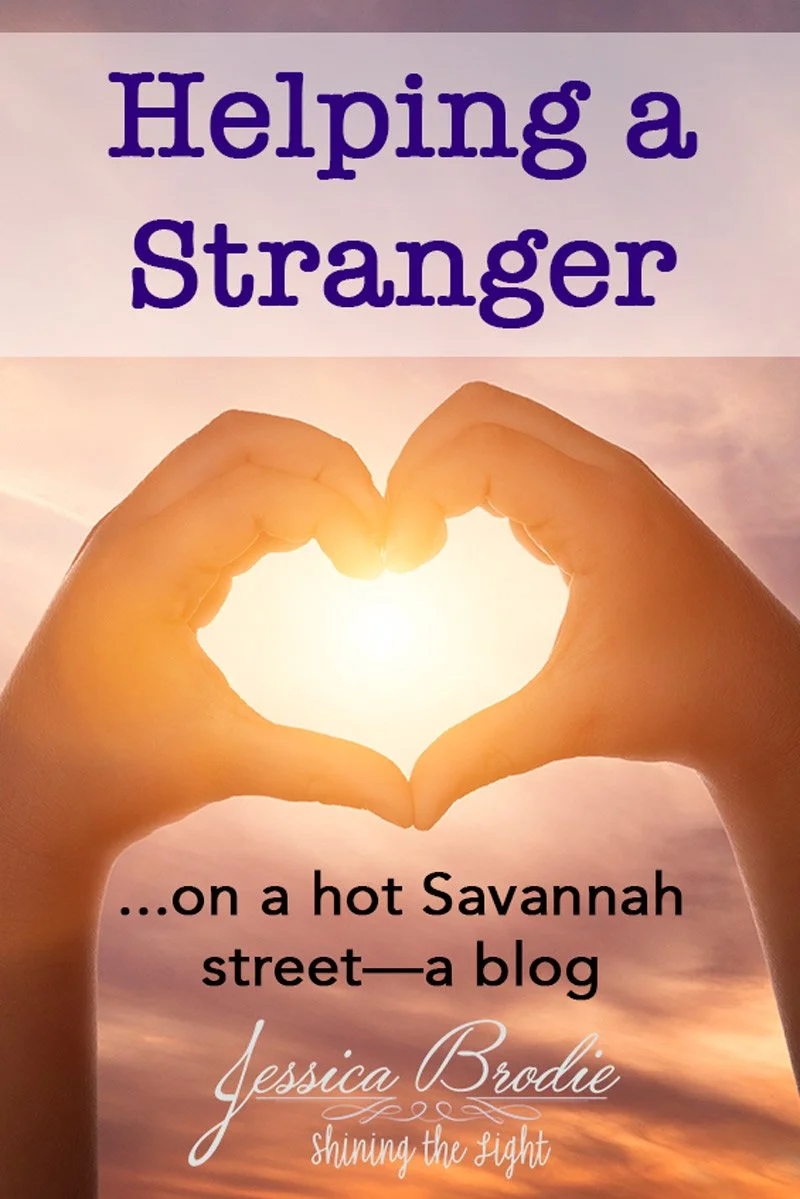Helping a stranger on a hot Savannah street
By Jessica Brodie
I crossed the bustling Savannah street, my mind on the air-conditioned shop ahead of us. It was so hot my face felt like a waterfall, my long hair like a soaked towel hanging limply on my back.
But my daughter tugged my hand.
“Mom, he’s homeless. He’s crying.”
I looked back and saw the man with his little sign, and my heart tumbled. But I had absolutely zero cash, and we needed to get out of the sun before one of my crew got heatstroke.
“Baby, I have nothing to give him,” I told her. “If I did, we could help, but we can’t. Come on.”
I drew her into the next store with me, window-shopping in cool bliss, and soon forgot about the man with his sign—but Avery didn’t. A few minutes later she’d begged a dollar from her older brother and the pair of them disappeared without telling me, back outside.
When I realized what they’d done, shame flooded as I praised them for their compassion. They’d seen past their own heat, their own needs, their own distractions, to help someone in need. I, well … I hadn’t. Very often I do, but that day? I’d failed.
I’d been the other two in Jesus’s story from Luke 10:25-37, the priest and the Levite, who’d walked by the beaten man in the street, not stopping to help but continuing on their way. My daughter, however, had been the Good Samaritan in the story, who saw the hurt man and stopped his own travels to care for him.
“Which of these three do you think was a neighbor to the man who fell into the hands of robbers?” Jesus asked as he told the story. As the Bible tells us, “‘The one who had mercy on him.’ Jesus told him, ‘Go and do likewise’” (Luke 10:36-37 NIV).
It’s not that I didn’t want to help the man, but I didn’t think I could. And I didn’t really stop to see him in the moment, to put myself in his shoes.
Even if I had no money, I could have done other things—talk with him, pray with him. I could have pulled out my debit card and bought him a bottle of water.
“He’s a scam artist,” you might say. Maybe so… but who’s to say? God knows, and it doesn’t really matter, does it? What matters is what I did (or didn’t do)—that I didn’t stop. My own child did, but I did not.
We’re told the right way to respond when we see someone in need: not judge, but stop and help. We’re told to “love your neighbor as yourself” (Matthew 22:39), not decide whether that person is “worthy” first.
Next time, I pray I do better. I’ll strive to do better.
How about you?


